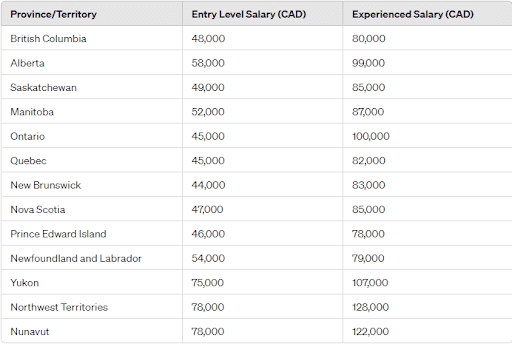Navigating the Process of Immigrating to Canada as a Teacher: A Comprehensive Guide
- May 15, 2024
- 5 min

Immigrating to Canada as a teacher can be a fulfilling opportunity due to the country's high standard of living, diverse cultural landscape, and supportive educational environment. Canada values skilled professionals, and teachers are often in demand across various provinces and territories. This guide provides a comprehensive look at the pathways for teachers to immigrate to Canada, including necessary qualifications, steps to follow, and tips to enhance your chances of success.
Understanding the Demand for Teachers in Canada
Education is a provincial responsibility in Canada, which means requirements and demands can vary significantly from one province to another. Generally, there is a steady demand for teachers, especially in subjects like mathematics, science, and special education, as well as in less urbanized or remote areas where it is harder to attract local educators.
Statistics Canada reports fluctuate annually, but as of recent data, the educational services sector employs about 1.5 million people, with public schooling accounting for the largest share. Employment growth projections in this sector remain stable, reflecting the ongoing need for educators across the country.
Qualifications Needed to Teach in Canada
Before you begin the immigration process, you need to ensure that your qualifications are recognized in Canada. Here’s what you typically need:
Education:
A bachelor’s degree in education or a bachelor's degree in another field coupled with a teaching certificate.
Certification:
Each province and territory has its own certification requirements. Certification generally involves an assessment of your educational credentials and may require additional training or examinations.
Language Proficiency:
Fluency in English or French is essential, depending on the province. Standardized language tests like the IELTS or TEF are often required to prove proficiency.
Experience:
Prior teaching experience, while not always mandatory, can significantly enhance your application, especially under certain immigration programs that favor skilled work experience.
Pathways to Immigration for Teachers
Several immigration pathways are open to teachers wishing to move to Canada, including federal and provincial programs.
Express Entry System
Canada's Express Entry system is one of the most popular pathways for skilled workers, including teachers. It manages applications for three federal immigration programs:
Federal Skilled Worker Program (FSWP)/Canadian Experience Class (CEC)/
Federal Skilled Trades Program (FSTP)
For teachers, the FSWP is most relevant. Candidates create an online profile and are scored under the Comprehensive Ranking System (CRS) based on factors like age, education, work experience, and language skills. Those with the highest scores are invited to apply for permanent residency.
Provincial Nominee Programs (PNPs)
Each of Canada’s provinces and territories has its own nominee program with criteria that reflect their specific labor market needs. For example:
Ontario Immigrant Nominee Program (OINP):
Often looks for teachers, especially in northern or rural areas.
British Columbia Provincial Nominee Program (BC PNP):
Targets skilled and post-secondary educators under various categories.
Other Programs
Teach in a rural or northern community:
Some programs specifically target teachers willing to work in remote areas, offering expedited or facilitated immigration processes.
Temporary Work Permits:
If securing a permanent position is challenging initially, teachers can consider temporary roles, which can later transition to permanent residency under programs like the CEC.
Preparing for Immigration
Credential Evaluation
The first step is to have your educational credentials assessed by an organization recognized by the Canadian government, such as World Education Services (WES). This evaluation will confirm whether your qualifications are equivalent to Canadian standards.
Licensing
Once your credentials are recognized, you must apply for a teaching license in the province or territory where you intend to work. This might involve additional exams or training courses, particularly if your previous education did not extensively cover Canadian law, culture, or teaching methods.
Job Search
Securing a job offer can significantly improve your immigration prospects, especially under PNPs. Utilize Canadian job search websites, educational institutions' career pages, and professional networks like LinkedIn. Additionally, some provinces may have recruitment events abroad or virtual job fairs you can participate in.
Salary Expectations for Teachers in Canada
The salary for teachers in Canada can vary widely depending on the province or territory, the educational level, the teacher's experience, and specific school districts. Here’s an overview of what teachers can typically expect:
Elementary and Secondary School Teachers
Public Schools:
According to the Canadian Teachers' Federation and other educational salary reports, the average salary for public school teachers ranges from approximately CAD $55,000 to $95,000 per year. New teachers at the lower end of the scale can expect to start around the CAD $55,000 mark, while more experienced teachers in senior positions can earn towards the higher end.
Private Schools:
Salaries in private schools can vary more significantly than those in public schools and often depend on the funding model of the school. On average, private school teachers might earn slightly less than their counterparts in public schools, starting around CAD $50,000.
Post-secondary Educators
University or college educators generally need a master’s degree or doctorate, and their salaries can be higher:
Lecturers and Instructors:
Depending on the institution and the individual’s qualifications, the salary can range from CAD $45,000 to $100,000 annually.
Professors:
Full-time professors with tenure can earn anywhere from CAD $85,000 to over $150,000 per year.
Geographic Variations
Salaries can also differ based on geographic location:
Urban vs. Rural:
Teachers in urban centers like Toronto or Vancouver often receive higher salaries to offset the higher cost of living in these areas. Conversely, rural areas might offer lower salaries but often have a lower cost of living.
Provincial Differences:
Provinces like Ontario and Alberta tend to offer higher average salaries compared to provinces like Prince Edward Island or New Brunswick.
Additional Financial Considerations
Benefits:
Most full-time teaching positions in Canada come with additional benefits, including health insurance, pension plans, and paid leave, which can add significant value to the overall compensation package.
Union Membership:
Most public school teachers in Canada are members of a teachers' union, which negotiates collective agreements on their behalf, including salary scales. These agreements ensure that salaries increase with years of experience and additional educational qualifications.
Maximizing Your Salary Potential
To maximize your earning potential as a teacher in Canada, consider the following strategies:
Specialize:
Specializing in high-demand subjects such as special education, STEM (Science, Technology, Engineering, and Mathematics), or second language education can lead to higher salaries.
Further Education:
Pursuing further education, like a master’s degree or a PhD, can qualify you for higher-paying positions, particularly in post-secondary education.
Location Choice:
Consider regions with higher salaries or where teachers are in greater demand, which can sometimes be less populated or remote areas.
Conclusion
Immigrating to Canada as a teacher requires careful preparation and understanding of both immigration and professional licensing processes. With the right qualifications and a strategic approach to meeting Canadian standards, teachers can find rewarding career opportunities in Canada. Moreover, by choosing less populated regions or in-demand specialties, you can increase your chances of a successful immigration outcome.
